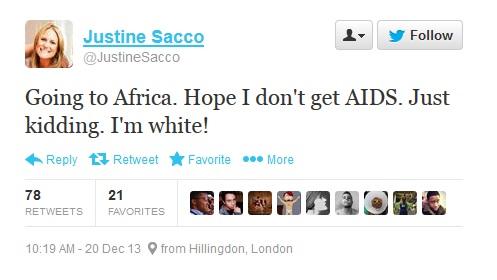Since the advent of social media, we’ve had the pleasure of being exposed to a selection of disastrous situations that should never have happened. Before that, the only people who got to comment on behalf of a company or brand were those with the authority to do so. Press releases, media interviews and any form of public announcements were handled by senior executives with sufficient training to be held accountable for what they said or wrote. And every message was checked and double-checked through the ranks before getting the stamp of approval to go out. Between the risks presented by hackers or disgruntled employees, however, and the mistake of letting junior staff or marketing interns handle the social profiles, it has been an interesting ride for onlookers.
Here are some of the top social media fiascos we’ve seen during the past few years:
1) Hacked!

Nokia New Zealand never confirmed that it was hacked, but in November 2013 a tweet with foul language was sent to 1,400 followers. To this day the company hasn’t clarified just what its investigation turned up, but the resultant retweeting frenzy probably didn’t do any real harm. Both Nokia and Twitter have tightened up security since then.
2) Didn’t Know Better

Justin Bieber has been showing his youthful ignorance a lot these days, but one of the highlights of his stupidity was Bieber's comment after visiting the Anne Frank museum that he hoped she would have been a “belieber” if she had lived. Granted, he didn’t post it on the museum's Facebook, but it’s a great example of the harm you can do by leaving your company’s messaging function in inexperienced hands.
3) Foot in Mouth Disease

Justine Sacco wasn’t an intern, a junior or a hacker – she just put her foot in her mouth when she posted that she was heading for Africa and hoping not to get AIDS—because she was white! She lost her job as senior director of corporate communications, her Twitter account was deleted and she’s been trying hard ever since to do damage control from her Facebook profile. The Twitterverse coined the hashtag #HasJustineLandedYet and some of the Sacco Twitter responses have been retweeted more than 1,600 times.
4) In Poor Taste

Food product SpaghettiOs failed the taste test on the anniversary of the Pearl Harbor attacks. The brand’s intentions were faultless—to remember those who lost their lives in the event—but it fell short on the details. Sure, you can say there’s nothing inherently wrong with a happy logo holding an American flag, but the lack of gravitas on such an historic occasion clearly offended many. The company eventually deleted the tweet and made an apology, but as so often happens the damage was done by the negative way it was received.
5) Exploiting the Disadvantaged

Breakfast cereal maker Kelloggs learned the same lesson about using social issues in its social media marketing when it offered to feed a “vulnerable” child in the U.K. for every retweet. Once again, it wasn’t the content of the tweet that was questionable, but the way it was received that was disastrous. Users accused the company of exploiting needy children to further its reach and message.
6) Whining

With social media providing afast, direct track to the outside world, you have to be careful who you trust with your login details. A disgruntled employee at HMV used the company’s Twitter account to post news of mass job cuts. And it’s not just your company account that can be used against you. Social media hashtags are very public mechanisms for linking tweets to issues, as French fashion brand Lacoste discovered recently. The company fired a worker for posting a copy of his payslip on Instagram, but got slammed for doing so.
7) Passing Personal Opinions
Meanwhile, in Philadelphia a police officer posted his personal (racist) opinion about black teens on his own Facebook page and got so much negative attention that he deleted the status. You can bet his superiors weren’t happy with him though!
It’s not just about what you post, or others post in your name. It’s about the way it’s received, and in most of these cases the damage has been done by the public’s reaction. Sure, we know you can’t always predict how people are going to view a post, but that’s exactly why it’s important to make sure the person or agency handling your social media knows what they are doing. Where possible, test your concepts before posting so you know how they are likely to be received. If you can avoid the drama in the first place, it’s much easier and less costly than trying to repair it after the fact.

